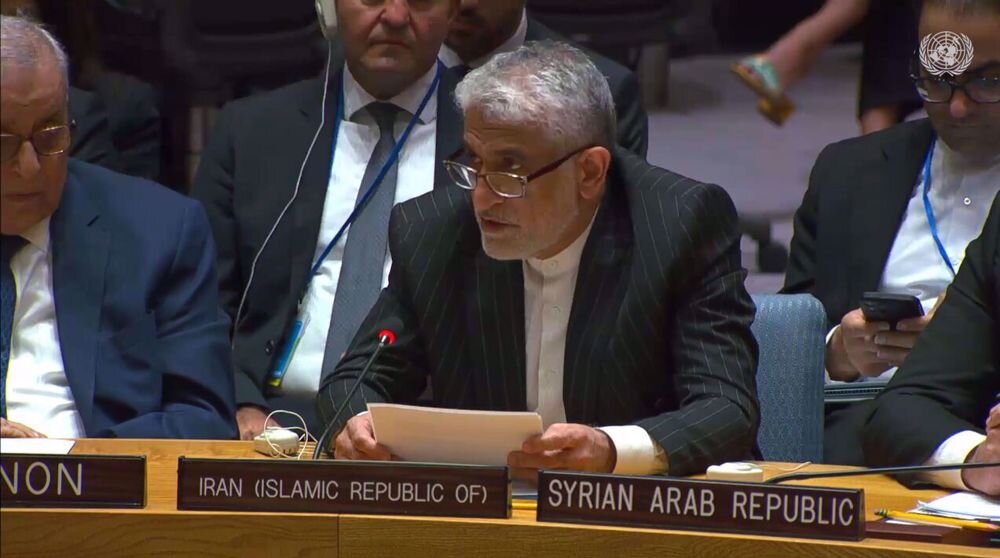Restoring Syria’s sovereignty is key to lasting peace: Iran UN envoy

TEHRAN – Iran’s Ambassador to the United Nations, Amir Saeid Iravani, has reiterated Tehran’s unwavering support for a sovereign, stable, and united Syria—free from terrorism, foreign occupation, and external interference.
Speaking at a UN meeting, Iravani underscored the urgent need to combat terrorism in Syria, particularly the threat posed by foreign terrorist fighters (FTFs), whom he labeled a "serious danger" to both Syria and the wider region. He called for the repatriation and prosecution of these fighters in accordance with international law, stressing Iran’s readiness to cooperate with all responsible partners in counterterrorism efforts.
The Iranian envoy also expressed deep concern over the March 6 attacks in Latakia and Tartus, which resulted in significant civilian casualties, notably among the Alawite community. He voiced Iran’s support for the UN Security Council’s call for an independent and transparent investigation into the incidents, emphasizing the need for accountability and protection of all communities within Syria under international law.
Iravani reaffirmed Iran’s steadfast commitment to Syria’s sovereignty, political independence, and territorial integrity, urging the immediate and unconditional withdrawal of all foreign forces unlawfully present in the country. Ending foreign occupation, he stressed, is crucial for restoring Syria’s sovereignty and achieving lasting peace.
Turning to Israeli actions, Iravani condemned the Israeli regime’s ongoing violations of Syria’s sovereignty, labeling them a "blatant breach" of international law, the UN Charter, Security Council resolutions, and the 1974 Disengagement Agreement. He cited a recent UNDOF report detailing Israeli incursions into the buffer zone and the establishment of military outposts, warning that such actions threaten international peace and security.
The Iranian ambassador called on the UN Security Council to take immediate action, warning that continued inaction only fuels further aggression and impunity, drawing a parallel with the escalating crisis in Gaza.
Highlighting Syria’s dire humanitarian situation, Iravani pointed out that more than 70% of the Syrian population—around 16.7 million people—currently require humanitarian assistance, the highest figure since the conflict began in 2011. He noted that over seven million Syrians remain internally displaced, while millions more live as refugees in neighboring countries, with aid efforts severely underfunded.
Addressing the impact of US sanctions, Iravani condemned the measures as "unjustified," arguing they block reconstruction efforts, cripple the economy, and hinder refugee returns. He called for the immediate and unconditional lifting of all sanctions on Syria.
Rejecting accusations of destabilizing Syria or the broader region, Iravani insisted such claims are politically motivated distortions of Iran’s position. He reaffirmed Tehran’s support for a Syrian-led, Syrian-owned political process in line with UN Security Council Resolution 2254, advocating for free and fair elections, national dialogue, and the formation of an inclusive government as the foundation for a peaceful settlement.
Leave a Comment